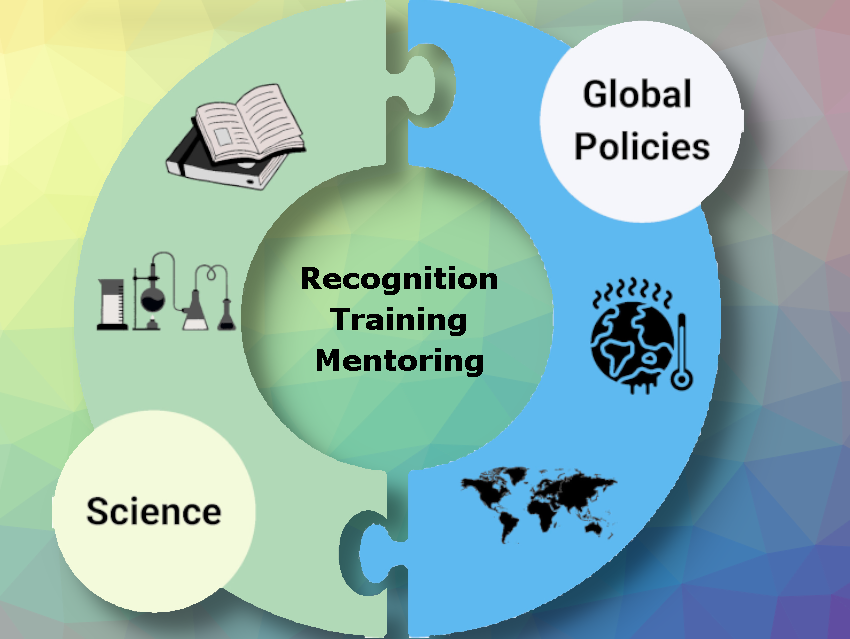Global challenges, including climate change, global pandemics, and antimicrobial resistance, necessitate coordinated international responses. Policy-makers have a responsibility to seek input from diverse experts to make informed decisions. Scientists play a crucial role in enabling evidence-informed policy-making, but there are barriers, especially for young scientists, that hinder their engagement in policy-making.
Torsten John, Massachusetts Institute of Technology (MIT), Cambridge, USA, Jovana V. Milić, University of Fribourg, Switzerland, João Borges, University of Aveiro, Portugal, and colleagues look at what hinders especially young scientists, who will face the most severe consequences of actions not taken today, from engaging in policy-making and what could be done to change this. In their opinion, scientific academies, societies, and networks should promote awareness and training programs and they recommend active participation in political decision-making through initiatives such as national academies for young scientists and collaborations with organizations such as the Young Academy of Europe (YAE) or the Global Youth Academy (GYA). Networks like the National Science Policy Network (NSPN) or the International Network for Science Governmental Advice (INGSA) offer training programs and networks like the European Young Chemists’ Network (EYCN) or the International Younger Chemists’ Network (IYCN) support young chemists and scientists in engaging with politics and addressing contemporary challenges, including sustainable development.
In academic settings, the authors find it crucial to consider scientists’ engagement in policy-making within evaluation and promotion criteria. Currently, universities often overlook this aspect, leading to a lack of motivation and time allocation for policy-related activities compared to other requirements. However, engagement with society should be seen as a norm rather than an exception.
Federal scholarships for STEM Ph.D. students often include specific courses like ethics training. Similar training could be developed to help researchers understand the policy implications of their own research and how they can better inform public policy. Additionally, universities and funding agencies often require statements on “broader societal impact”, with the expectation that scientists engage with the public. However, scientists are rarely trained to present their research to policy-makers, and institutions and funding agencies do not sufficiently incentivize transdisciplinary research.
- Engaging Early-Career Scientists in Global Policy-Making,
Torsten John, Kyle E. Cordova, Christopher T. Jackson, Alma C. Hernández-Mondragón, Bianca L. Davids, Lovish Raheja, Jovana V. Milić, João Borges,
Angew. Chem. Int. Ed. 2023.
https://doi.org/10.1002/anie.202217841
Also of Interest
- Spotlight: EYCN and IYCN: Connecting and Empowering Young Chemists Globally,
Dimitra T. Pournara, Gabriela Desireé Tormet-González, Sebastian Weber, João Borges, Maximilian Menche, Jovana V. Milić,
ChemistryViews 2020.
https://doi.org/10.1002/chemv.202000020




